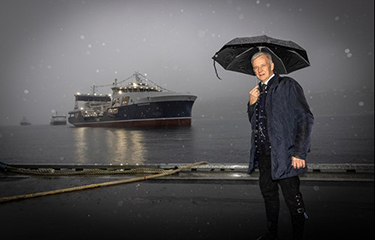Glyvrar, Faroe Islands-based Bakkafrost Group recorded a strong Q3 2023 in its fishmeal, fish oil, and feed segment, but low fish growth rates at its Faroese farming sites and micro-jellyfish blooms causing high mortality on its Scottish farms have resulted in the company delaying some planned harvests in both regions until Q1 2024.
Delivering Bakkafrost’s Q3 2023 results, CEO Regin Jacobsen explained the aim of the delays is to optimize average fish size and increase price premiums, comparing the strategy to the approach it chose to take within its Scottish segment last year. In addition, since mid-September, biological conditions have significantly improved in Scotland and the Faroe Islands, Jacobsen said.
Jacobsen largely attributed the disappointing growth rates in the Faroes to fish coming from one specific batch of smolt that was subjected to poor water quality in their hatchery in August 2021.
Jacobsen said the smolt had not “lived up to expectations” and that the impact on Q3 growth demonstrated the importance of having consistent high-quality smolt. He said maintaining consistent smolt quality and size is one of the main priorities moving forward as the group increases its smolt production through expansions at its Norðtoftir, Glyvradal, and Viðareiði hatcheries in the Faroes, as well as Applecross in Scotland.
Earlier this month, it also signed a contract for …
Photo courtesy of Bakkafrost








